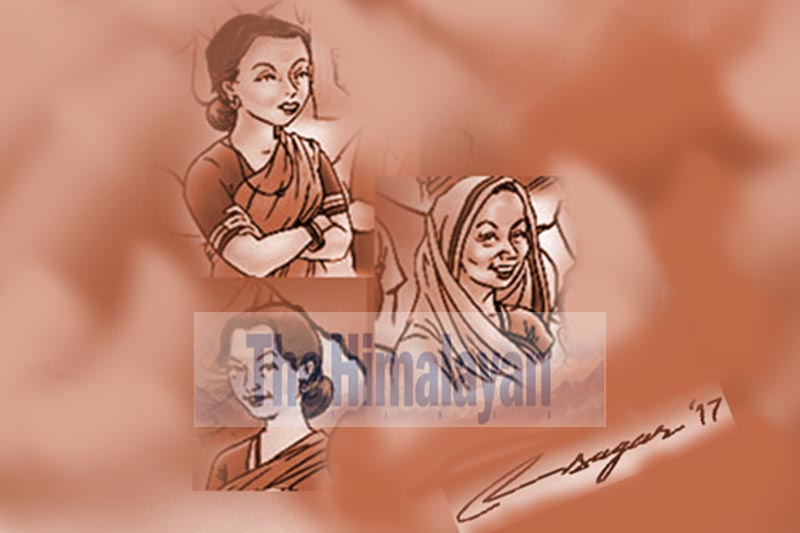Single women still face social discrimination
Kathmandu, June 24
Mala Devi Jaiswal, 42, a resident of Rautahat, could not take part in her daughter’s marriage ceremony rituals. She was told her participation would be ‘inauspicious’ because she happened to be a widow.
“I felt bad and discriminated yet I couldn’t say anything,” said Jaiswal.
In patriarchal Nepali society, where women are still fighting for equal rights, a woman who has lost her husband faces even more discrimination. The oppressive social norms bar widows from wearing whatever she likes: Red-coloured clothes are a big ‘no’. She cannot move freely, take part in religious ceremonies or remarry. A widow also faces difficulty in claiming her husband’s property and is taunted by in-laws as she is blamed for her husband’s death.
Sakuntala Yadav, 39, a resident of Siraha, whose husband disappeared 14 years ago, has raised two children on her own since then. For her children’s further studies she needs money. But she has not been able to claim her husband’s property. “I fear my younger son won’t be able to get his citizenship if I ask for my share of property from the in-laws,” she said.
Yadav had to produce 25 villagers as witnesses before the local authority to enable her elder son to get a citizenship. Now, her younger son has become eligible for citizenship. But in Nepal, only a father or his family members have to be present at the ward and district offices to get the document. “If I take legal recourse to get my share of property, my in-laws will trouble me when my child initiates the process of obtaining citizenship,” she said.
In-laws of most of widows use lack of financial acumen and chances of misuse of assets as pretexts to deny property rights to single women. But in reality, property is generally used as a bargaining tool to provide citizenships to their offspring.
“My son probably would not have received his citizenship certificate had it not been for my brother in-law,” said Sashi Devi Bhatta, a resident of Dharmasthali, Kathmandu, who lost her husband 19 years ago.
Nepal has seen significant political changes over the years and participation of women has gone up in the Parliament as well government offices. But rigid social structures have not changed.
Yadav, for example, has faced allegations of ‘having an affair’ simply because he has held conversations with men.
“It is sad that we are sometimes not treated as human beings. People often use harsh words and some of the men even follow us and sexually harass us,” said Sita Shrestha, a resident of Janakpur, who lost her husband 11 years ago.
Shrestha once had to hit a man who misbehaved with her when she was returning home from the workplace with her daughter. “It is very difficult to protect your children, especially girls, if you are a single woman,” said Shrestha, a mother of six daughters.
Single women are still barred from vital registration. There is no ownership of property. They are economically dependent. The government has to bring pragmatic programmes that would improve the lot of women at the grassroots level to help them become independent, said Lily Thapa, founder of Women for Human Rights.






